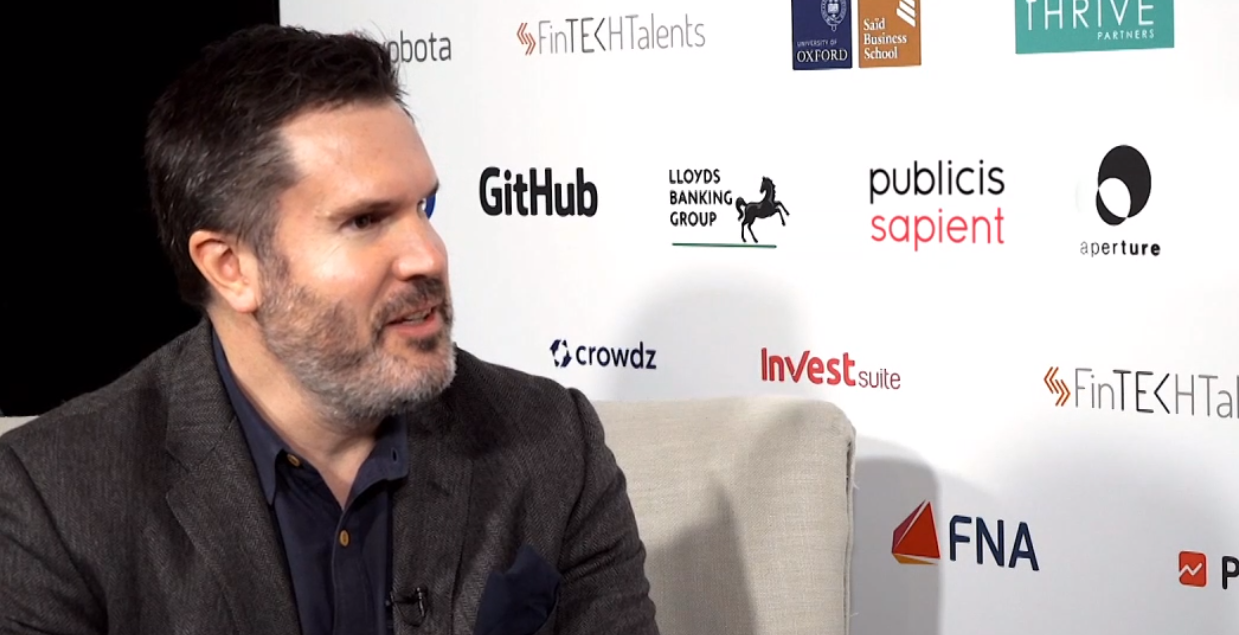
We sat down with Matt Locsin, Head of Innovation at Publicis Sapient to talk about the forces of change in FinTech, short and long term goals and what incumbent banks need to do to rise to the challenge at FinTECHTalents 2019.
Watch the video now:
How are incumbent banks working with the forces of change?
I think they’ve got their head around it. Beyond that I think that they are really gripped by a whole bunch of uncertainty. I think the first thing they understand is that digital can take cost and complexity out of their operations. You see them investing billions of pounds per year, everything from front line all the way back through all of their operations.
Where I think they have increasing uncertainty is the relevance of some digital technologies to really change what they do not just change how they do it. I’ll give you some examples:
- It might be things like applications of machine learning in performing analytics.
- It might be things like whether I get into distributed ledger technology.
- It might be things like even new commercial models that are built on business platforms as opposed to selling product through distribution.
There’s a huge debate that’s taking place in terms of what the possible implications of these technologies might be and some of their applications. I think that’s healthy in terms of uncertainty, but I think that the technology is actually evolving faster than the debate.
Do you think we will see significant change in terms of ‘the winners’ in this sector?
The only way I can possibly answer that question with a straight face would be depending on major shifts in public policy. If the regulator decided that ‘Hey, we actually would like to use different technology to keep bad guys and bad ideas out of the financial system’ – if that does happen then you’ll see massive change in terms of some of the winners. If we still stick with banks and all of their infrastructure and all of their control systems and governance, then I don’t think you’re going to see a material change in terms of the winners.
As people alluded to earlier this morning, I do think in the short term it’ll come down to who can get their costs under control in the middle term. It’ll be about who can adapt their services to actually be much lighter, much friendlier, much more ethical and much more accessible to people.
Is it too late for banks to rise to the FinTech challenge?
No, I don’t think it’s too late at all. I think there’s the old chestnut – it’s the footrace between the incumbent if they can get the innovation versus the innovator getting the distribution.
By the way, years ago different execs would sort of wring their hands and say ‘Oh, I’m worried that the FinTechs might actually eat the banks’. I think what they then saw, in the intervening years, is really more ‘Oh I think the FinTechs want to get bought by the banks, they want to partner with the banks’.
I think that what banks have to do is think about:
- How do I begin to operate with discipline around changing out the technologies that I’m using?
- Start to investigate critically the competencies that they use that deliver their business.
- Whether or not they’re the right ones for the tools that are available.
- Finally, it’s how do we actually make money – like what are we charging for and is that really expensive, is it rare, is it really useful?
There I think you’ll see more competition coming in as other tech companies or other service companies subsume financial service as a part of their overall offering.
To find out more about Publicis Sapient and their financial services business please follow this link.











